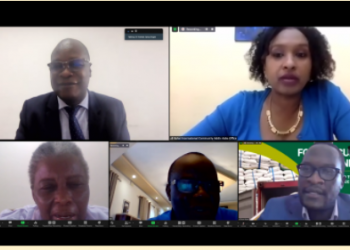African perspectives on the links between rural livelihoods and the drivers of migration
“Migration is a symptom and not a cause” stated Dr. Ahmed Zanya Bugre, Sspecial Adadvisor on migration to the African Union Commission, at an online event hosted by the BIC Addis Ababa and Brussels offices on 5 May. More than 40 participants involved in the fields of agriculture and migration across Africa joined the event, which aimed to explore African experiences of the links between rural livelihoods and drivers of migration.
Dr. Zanya Bugre pointed to the predominance of rural landscapes and agrarian societies across the continent and explained how this factor triggers migratory movements as people search for alternatives in the face of deteriorating conditions. Referring more specifically to the partnership between Europe and Africa, he insisted on the importance of acknowledging how the historical foundations of the two continents’ relationship affect their partnership today and how the effects of international policies on Africa must be better understood.
Several participants provided examples from their own experiences. Dr. Zerihun Desalegn Gebregiorgis, an agronomist from Ethiopia working at Solidaridad Network, an organizsation supporting farmers throughout the value chain, mentioned the need to address aspirations for living in rural areas, especially amongst young people who are leaving for urban centres in large numbers. Elvira Pruscini from the World Food Programme spoke to the interaction of multiple drivers of migration in rural areas across the region, including climate change, conflict, and economic aspirations, and thus the necessity to use nexus approaches to address migration. Another participant referred to the importance of community-led local approaches, for instance for the generation and efficient functioning of innovations addressing climate change. Other aspects of the complex relationship between rural livelihoods and migration that were mentioned included the role of the private sector in influencing market conditions, the importance of engaging with communities, the opportunities that educational reform can provide, and the limits of policies focused on employment and investments.
